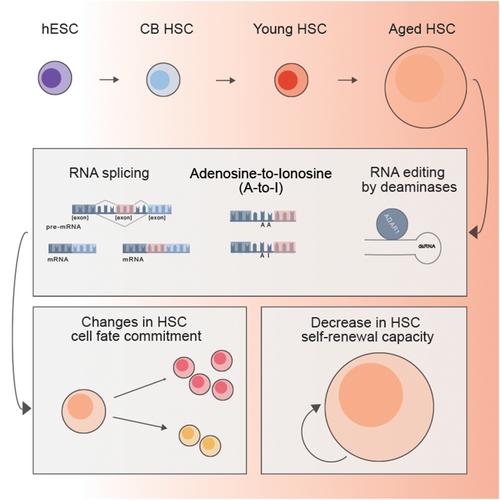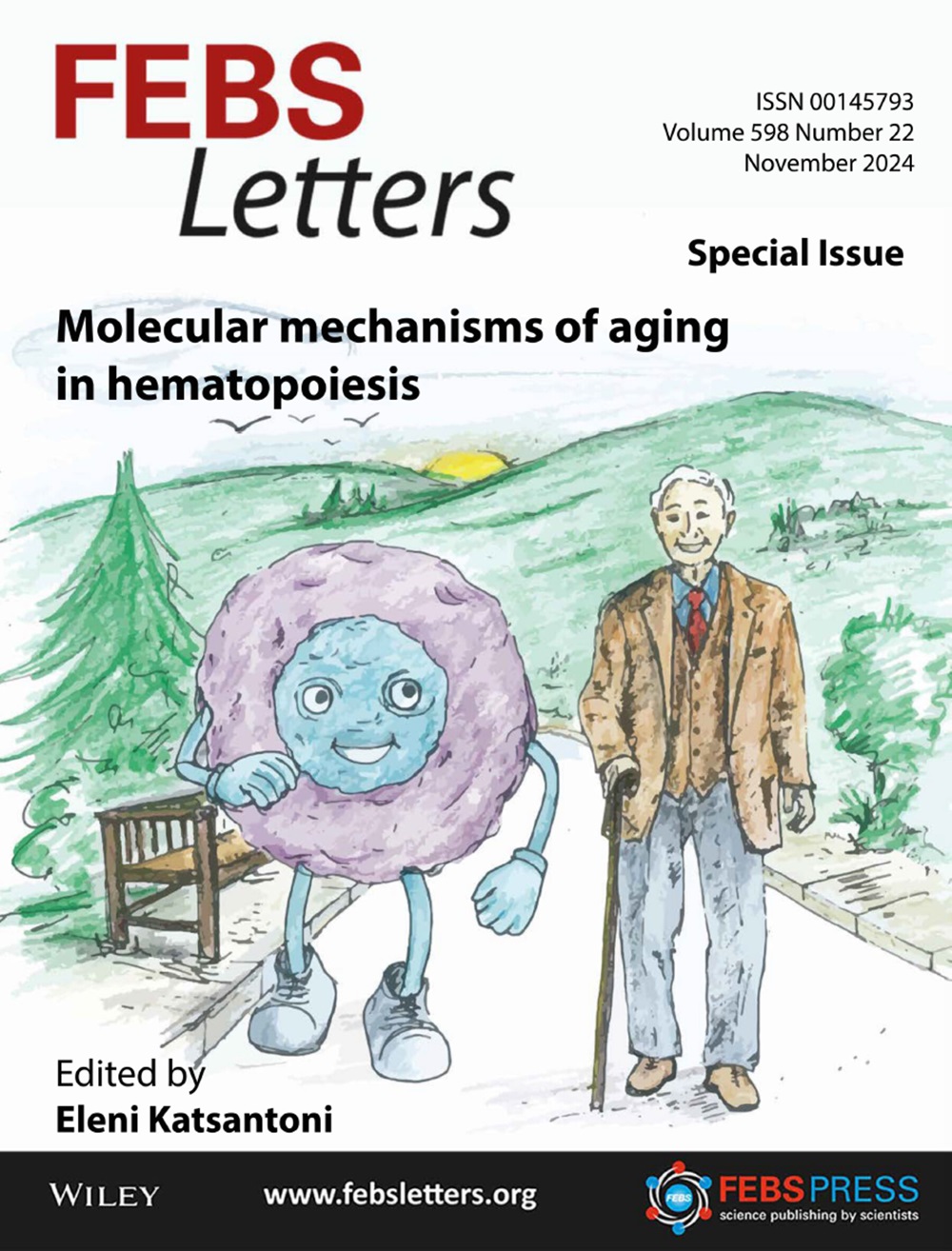RNA 修饰影响造血干细胞衰老:超越代码
IF 3.5
4区 生物学
Q1 Biochemistry, Genetics and Molecular Biology
引用次数: 0
摘要
造血系统衰老的特点是造血干细胞(HSC)和生态位退化,导致髓系定向分化、B细胞和T细胞淋巴生成减少、HSC动员增加以及骨髓中脂肪沉积。在造血干细胞衰老过程中,RNA剪接和编辑的改变都会导致髓系倾斜和炎症反应性转录因子增加,这突出了表转录组机制在获得与年龄相关表型中的重要性。本文章由计算机程序翻译,如有差异,请以英文原文为准。

RNA Modifications Shape Hematopoietic Stem Cell Aging: Beyond the Code
Hematopoietic system aging is characterized by both hematopoietic stem cell (HSC) and niche degeneration resulting in myeloid lineage-biased differentiation, reduced B cell and T cell lymphopoiesis, increased HSC mobilization, and fat deposition in the bone marrow.
Both alterations in RNA splicing and editing during HSC aging contribute to increased myeloid lineage skewing and inflammation-responsive transcription factors, underscoring the importance of epitranscriptomic mechanisms in the acquisition of an age-related phenotype.
求助全文
通过发布文献求助,成功后即可免费获取论文全文。
去求助
来源期刊

FEBS Letters
生物-生化与分子生物学
CiteScore
7.00
自引率
2.90%
发文量
303
审稿时长
1.0 months
期刊介绍:
FEBS Letters is one of the world''s leading journals in molecular biology and is renowned both for its quality of content and speed of production. Bringing together the most important developments in the molecular biosciences, FEBS Letters provides an international forum for Minireviews, Research Letters and Hypotheses that merit urgent publication.
 求助内容:
求助内容: 应助结果提醒方式:
应助结果提醒方式:


